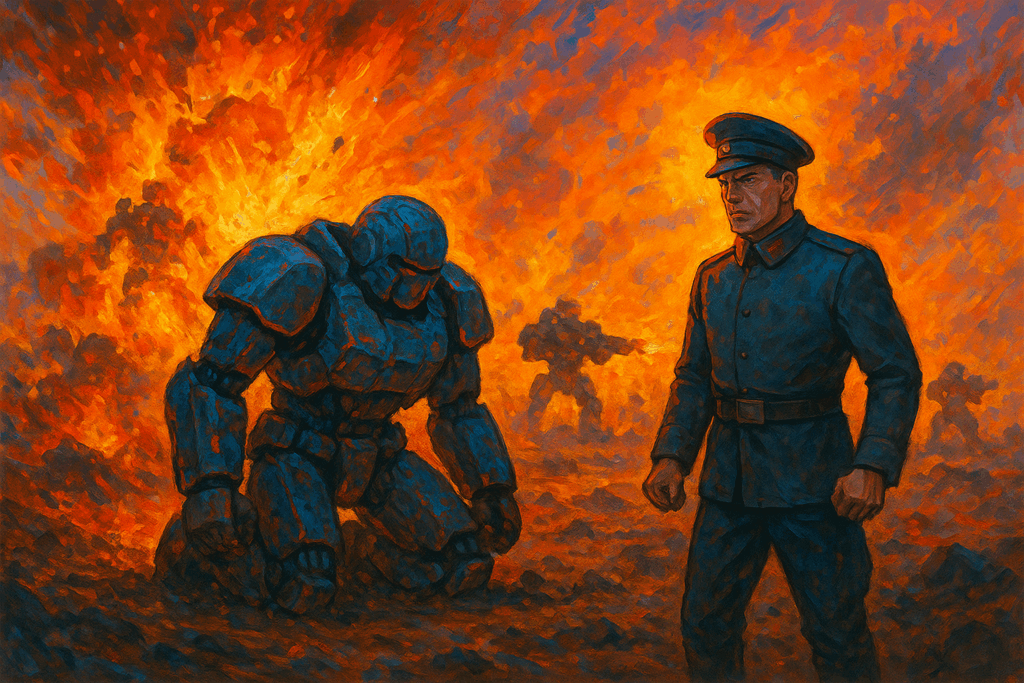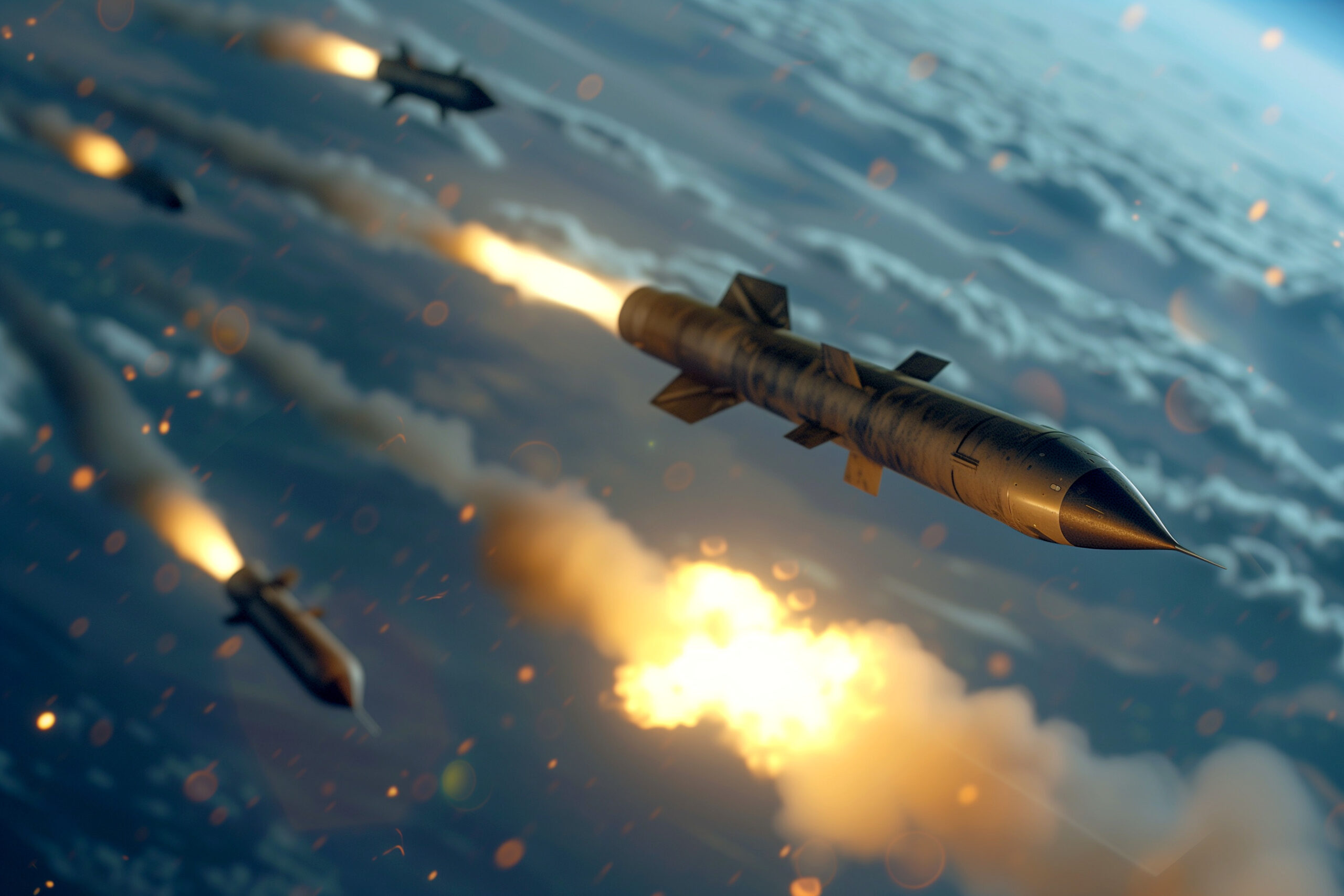The unavoidable truth: defeats in the Alpha Strike
Every experienced player knows the feeling: the dust settles on the battlefield, the last shots have been fired and the result is a bitter defeat. But instead of sinking into frustration, we should see these moments as invaluable learning opportunities. This blog post is dedicated to the art of learning from our failures in Alpha Strike and going into the next battle stronger by analyzing critical mistakes and sharpening our strategies.

More than just a lost game: the right attitude to defeat
Defeat can be disheartening, but it does not mark the end of the road, but rather an important stage on the path of learning. The way in which we deal with setbacks often determines our progress more than the actual outcome of a game. Anyone who remains frustrated or self-critical after a defeat blocks the opportunity to develop further. It is therefore crucial to consciously put your own emotions aside and look at the situation with a cool head and an objective view.
Instead of blaming ourselves or our opponent, we should ask ourselves honestly and constructively: What could I have done differently? Which decision on the battlefield was unfortunate? Did I use my resources correctly? Did I make the best use of my units’ strengths or underestimate my opponents’ weaknesses?
By asking ourselves these questions, we transform a defeat from a seemingly negative experience into a valuable lesson. Every game we lose contains a treasure trove of knowledge that strengthens us for future games. This attitude allows us not only to improve technical skills and strategic thinking, but also to build composure and mental strength.
Defeat is therefore not a failure in the true sense of the word, but rather an indispensable part of the learning process. Those who are prepared to learn from setbacks emerge stronger from them and develop into a more reflective, confident player.
Typical pitfalls: where the battle is often lost before the first shot is fired
When analyzing defeats, you often notice recurring patterns. The problem often starts with list planning: an unbalanced mech selection, unsuitable pilot skills or a lack of synergy between units can significantly reduce your chances. But missteps such as ill-considered positioning, ignoring cover or inefficient target prioritization are also crucial on the battlefield. I will examine these aspects in detail and show you how to avoid them.
The chess game of mechs: strategic movement as the key to success
Alpha Strike is essentially a game of movement. The positioning of the units is decisive for the outcome of a game. Unfavorable movement can lead to units becoming isolated, falling into open lines of fire or not getting within range of important mission objectives in time.
The terrain plays a central role here. Cover, height differences and bottlenecks are not just obstacles, but tactical tools that can be used to gain advantages. If you use the terrain correctly, you can create favorable shooting positions, make enemy fire more difficult and exert targeted pressure on certain areas of the playing field.
The mutual support of the units is particularly important. Isolated mechs are vulnerable, while coordinated groups combine their firepower and force the enemy to make difficult decisions. Placement should be aimed at opening up offensive opportunities as well as strengthening the defensive capabilities of your own forces.
Every move therefore requires foresighted planning. In addition to your own position, you must always consider what reactions your opponent might show in the next move. Successful play is based on the ability to anticipate these potential reactions and safeguard your own movements accordingly.
Movement is therefore not just a means of reaching objectives or bridging distances, but the central tactical element of BattleTech Alpha Strike. Those who master it create the basis for effective attacks, stable defensive positions and an overall higher survivability of their own forces.
Who falls first: the importance of choosing the right target
One of the most difficult decisions in battle is choosing the right target. Every unit on the field is a potential threat, but not every one is equally relevant to the course of the game. The question is therefore: should the most dangerous enemy be eliminated first to prevent immediate damage? Does it make more sense to secure mission objectives early on, even if this leaves other units unharmed for the time being? Or is there a greater benefit in eliminating enemy support, such as reconnaissance, artillery or supply units, which appear less dangerous at first glance but can be decisive later on?
Incorrect prioritization can have serious consequences. Shots fired at a target of little relevance are wasted in retrospect. At the same time, every missed opportunity to eliminate a key threat in good time means that your own combat power is gradually diminished. Target selection is therefore always a balancing act between immediate threat defense and long-term strategy.
Furthermore, the management of your own resources must not be neglected. In Alpha Strike and comparable systems, this includes factors such as the accumulation of heat or the physical positioning of units in relation to the lines of sight of the playing field. If you ignore these aspects, you run the risk of no longer being able to act at the decisive moment. An overheated mech that has to sit out a round or a unit that has no line of sight can tip the scales in favor of the opponent.
Well thought-out target prioritization in combination with careful resource management therefore forms the foundation of successful battle management. Only when both aspects are in harmony – choosing the right target and ensuring operational readiness – can the full potential of an armed force be exploited.
More than just avoiding mistakes: Taking advantage of unused opportunities
Defeats are not only the result of mistakes, but often also of missed opportunities. Did I make the best use of my mechs’ special abilities? Did I take terrain features into account enough to create cover or fire lines? Were there synergies within my list that I didn’t take advantage of? Recognizing these missed opportunities requires a detailed retrospective and helps us realize our full tactical potential.
Reborn from the ashes: concrete steps for improvement
Once you have recognized your own mistakes and missed opportunities, the decisive step begins: implementing improvements. Theory alone is not enough – it must be put into practice. This can mean making targeted adjustments to the army lists and trying out different compositions in order to discover new synergies. It is also useful to experiment with alternative tactics, such as more aggressive flanking maneuvers or more defensive formations, depending on the mission objective and the opposing forces. Another aid is the study of replays or recordings of past games, as they make situations visible that were easily overlooked in the heat of battle. The targeted practice of individual maneuvers, such as coordinated retreats, combined attacks or the precise exploitation of terrain, also helps to turn weaknesses into strengths.
It is important to not only collect the knowledge gained theoretically, but to actively incorporate it into the preparation of future games. Every adjustment, no matter how small, increases flexibility in the long term, improves decision-making under pressure and boosts overall performance. In this way, a defeat becomes not just a setback, but a structured learning process that lays the foundation for sustainable success.
Lesson learned: emerge stronger from every defeat
Every defeat in Alpha Strike offers the opportunity to grow as a player and develop your own style of play. Setbacks are not a sign of weakness, but an indispensable part of the learning process. If you are prepared to critically analyze your games, openly acknowledge weaknesses and implement concrete improvements, you can turn supposed failures into valuable lessons.
This continuous process makes the difference between a player who is treading water and one who is making steady progress. Defeats serve as touchstones that force us to think more strategically, react more flexibly and refine our tactics. With every lost battle, not only does our knowledge of the game itself grow, but also our understanding of our own approach.
Those who internalize this attitude enter future battles with a sharpened awareness and greater determination. Defeats thus lose their discouraging character and become a drive that paves the way for future victories.



